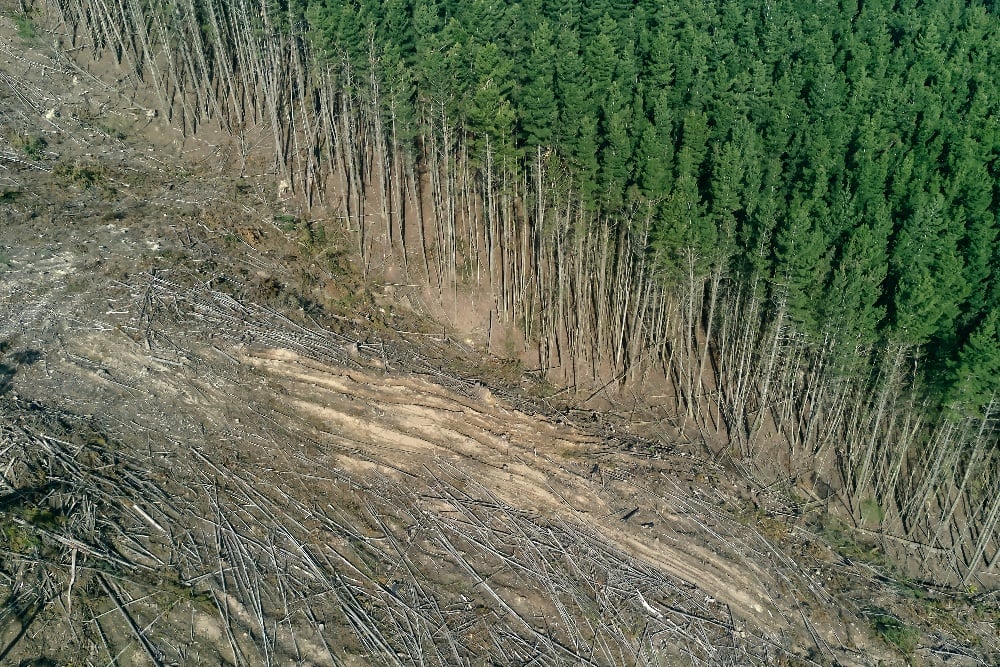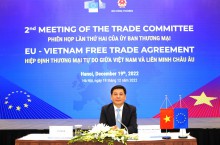The News
Key points from the 2022 Annual report on Overview of developments in the international trading environment by the WTO Director-General
On 22 November 2022, the WTO Director-General issued her annual report titled “Overview of Developments in the International Trading Environment” covering the period from October 2021 to October 2022. Key findings of the report are as follows.
On 22 November 2022, the WTO Director-General issued her annual report titled “Overview of Developments in the International Trading Environment” covering the period from October 2021 to October 2022. Key findings of the report are as follows.
The Report is set against a backdrop of slowing international trade as the global economy struggles with several interconnected shocks, including the war in Ukraine, high inflation, devastation left by several climate change-related events, and lingering side-effects from the COVID-19 pandemic. The volume of world merchandise trade is expected to increase by 3.5% in 2022, with the pace of growth slowing in the second half of the year. Trade is estimated to further decelerate in 2023, with an expansion of just 1.0% for the year, down sharply from the previous estimate of 3.4%. Global GDP growth is estimated at 2.8% in 2022 and 2.3% in 2023. Low-income countries are among the most vulnerable to these developments, as increased costs and reduced supplies of food and energy raise concerns about food security and debt distress.
Inflation in 2022 was the highest some countries have experienced in decades. Increasing interest rates is the prevalent instrument used by some Central Banks to control inflation, but not without risks or repercussions. Under-tightening monetary policy may cause continued increases in inflation, while over-tightening may tip economies into recession. The cross-country potential inflationary effect from divergent policies and the appreciation of the US dollar are sources of inflationary pressures for some economies.

The COVID-19 pandemic has brought attention to potential market failures in value chain organization and disruptions to GVCs have been headline news since then. While industries and regions were affected in different ways, supply chains proved to be resilient during the pandemic and since the outbreak of the war in Ukraine.
The pace of implementation of export restrictions by WTO Members has increased since 2020, first in the context of the pandemic and subsequently by the war in Ukraine and the food crisis. Between mid-October 2021 and mid-October 2022, WTO Members gradually lifted some of these export restrictions. As of mid-October 2022, 52 export restrictions on food, feed and fertilizers and 27 COVID-19-related export restrictions on essential products to combat the spread of the virus were still in place.
During the review period, WTO Members introduced more trade-facilitating (376) than trade-restrictive (214) measures on goods, unrelated to the pandemic. The average number of trade-facilitating measures per month was the highest recorded since 2012. Most of the facilitation happened on the import side while most of restrictions were on the export side. For the first time since the beginning of the Trade Monitoring Exercise, the number of export restrictions have outpaced that of import restrictions. The trade coverage of the trade-facilitating measures was estimated at USD 1,160.5 billion, and that of the trade-restrictive measures at USD 278.0 billion.
The stockpile of import restrictions in force continues to grow. By mid-October 2022, some 9.3% of global imports continue to be affected by import restrictions implemented since 2009 and which are still in force.
Initiations of trade remedy investigations by WTO Members declined sharply during the review period (10.9 initiations per month, the lowest since 2012) after reaching its highest peak in 2020 (36.1 initiations per month). Trade remedy actions remain an important trade policy tool for many WTO Members, accounting for 37.4% of all non-COVID-19-related trade measures on goods recorded in this Report. Anti-dumping continues to be the most frequent trade remedy action in terms of initiations and terminations.
In the services sectors, 174 new measures were introduced by WTO Members, a third of which targeted telecommunication, computer, and Internet- and other network- enabled services and a quarter affected financial services. Although most new measures were of a trade-facilitating nature a significant number was trade-restrictive.
The implementation of new COVID-19 trade-related measures by WTO Members has decelerated over the past 12 months, with 45 such measures recorded on goods and 4 on services. Additional information communicated by WTO Members mainly consisted of termination of existing measures or amendments of others. Many COVID-19-related measures affecting trade in services are still in force. The number of new COVID-19-related support measures by WTO Members and Observers to mitigate the social and economic impacts of the pandemic fell sharply over the review period.
Since the outbreak of the pandemic, 443 COVID-19-related trade and trade-related measures in the area of goods have been introduced by WTO Members and Observers. Most were trade-facilitating (246 or 56%), while the rest were trade-restrictive (197 or 44%). Members continued to phase out the pandemic-related measurers, and in particular the restrictive ones, during the review period. According to information received by the Secretariat, as of mid-October 2022, 79.2% of the COVID-19-related trade restrictions have been repealed, leaving 27 export restrictions and 14 import restrictions in place. Although the number of the pandemic-related trade restrictions still in place has decreased, their trade coverage remains important at USD 134.6 billion.
WTO Members continued to use the SPS and TBT Committees' transparency mechanisms to notify their sanitary and phytosanitary (SPS) and technical barriers to trade (TBT) measures and to discuss and often resolve specific trade concerns (STCs) non-litigiously. Food safety was the most frequent objective identified in the regular SPS notifications submitted by WTO Members during the review period. Most of the new specific trade concerns (STCs) raised in the SPS Committee during the review period also concerned food safety. WTO Members submitted 127 SPS notifications and communications on measures taken in response to the pandemic.
Most of the new regular TBT notifications submitted by WTO Members during the review period, indicated the protection of human health or safety as their main objective. A total of 249 STCs were discussed during the review period. Members submitted 225 COVID-19-related TBT notifications to the WTO in response to the pandemic.
Members continued to use WTO bodies to address their trade concerns and engage trading partners on real or potential areas of trade friction.
In the Committee on Agriculture (CoA), Members posed 344 questions regarding individual notifications, overdue notifications, and specific implementation matters (SIMs) under Article 18.6. Most of these (64%) focused on Members domestic support notifications or policies.
WTO Members continued to fine-tune their IP domestic frameworks and to implement specific IP measures to facilitate the development and dissemination of COVID-19-related health technologies. The pace of implementation of specific measures related to COVID-19 health technologies slowed during the review period.
The Report also covers several other important trade-related developments and discussions that took place during the review period, including domestic regulation in services, electronic commerce, investment facilitation for development, micro, small and medium-sized enterprises (MSMEs), trade finance, and women's economic empowerment.
Source: WTO

-cr-220x145.jfif)


